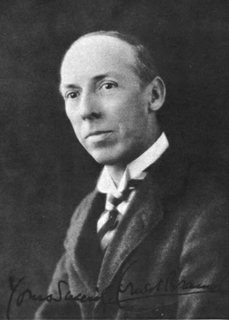A Quote by Marcel Proust
The fact of the matter is that, since we are determined always to keep our feelings to ourselves, we have never given any thought to the manner in which we should express them. And suddenly there is within us a strange and obscene animal making itself heard, whose tones may inspire as much alarm in the person who receives the involuntary, elliptical and almost irresistible communication of one's defect or vice as would the sudden avowal indirectly and outlandishly proffered by a criminal who can no longer refrain from confessing to a murder of which one had never imagined him to be guilty.
Quote Topics
Alarm
Almost
Always
Animal
Any
Communication
Confessing
Defect
Determined
Express
Fact
Feelings
Given
Guilty
Had
Heard
Him
Imagined
Indirectly
Inspire
Involuntary
Irresistible
Itself
Keep
Longer
Making
Manner
Matter
May
Much
Murder
Never
Obscene
Our
Ourselves
Person
Refrain
Should
Since
Strange
Sudden
Suddenly
Them
Thought
Tones
Us
Vice
Which
Whose
Within
Would
Related Quotes
As regards this vice, we read that the peacock is more guilty of it than any other animal. For it is always contemplating the beauty of its tail, which it spreads in the form of a wheel, and by its cries attracts to itself the gaze of the creatures that surround it. And this is the last vice to be conquered.
This world and life of ours are filled with inequalities. The worst possible use to make of this fact, however, is to allow resentments to possess us. All of us have imagined limitations, but we have also the privilege of pushing them aside, and spreading our lives out! We never know any of our limitations until we put ourselves to the test. There are always "growing pains" working within us.
My father never got films to our dinner table. It was never the case with us as well that our father works in films, and we know so many actors. It was like him going to work like any other father. In fact, my school friends would ask me if I have met a certain actor, and I would tell them that I haven't, which they found strange.
Although our moral conscience is a part of our consciousness, we do not feel ourselves on an equality with it. In this voice which makes itself heard only to give us orders and establish prohibitions, we cannot recognize our own voices; the very tone in which it speaks to us warns us that it expresses something within us that is not of ourselves.
The more sincerity is developed, the greater share of truth you will have. And however much sincerity a person may have, there is always a gap to fill, for we live in the midst of falsehood, and we are always apt to be carried away by this world of falsehood. Therefore we must never think we are sincere enough, and we must always be on our guard against influences which may carry us away from that sincerity which is the bridge between ourselves and our ideal. No study, no meditation is more helpful than sincerity itself.
I shall never forget how I was roused one night by the groans of a fellow prisoner, who threw himself about in his sleep, obviously having a horrible nightmare. Since I had always been especially sorry for people who suffered from fearful dreams or deliria, I wanted to wake the poor man. Suddenly I drew back the hand which was ready to shake him, frightened at the thing I was about to do. At that moment I became intensely conscious of the fact that no dream, no matter how horrible, could be as bad as the reality of the camp which surrounded us, and to which I was about to recall him.
That the boat did not upset I simply state as a fact. Why it did not upset I am unable to offer any reason. I have often thought about the matter since, but I have never succeeded in arriving at any satisfactory explanation of the phenomenon. Possibly the result may have been brought about by the natural obstinacy of all things in this world. The boat may possibly have come to the conclusion, judging from a cursory view of our behaviour, that we had come out for a morning's suicide, and had thereupon determined to disappoint us. That is the only suggestion I can offer.
In the Renaissance, madness was present everywhere and mingled with every experience by its images or its dangers. During the classical period, madness was shown, but on the other side of bars; if present, it was at a distance, under the eyes of a reason that no longer felt any relation to it and that would not compromise itself by too close a resemblance. Madness had become a thing to look at: no longer a monster inside oneself, but an animal with strange mechanisms, a bestiality from which man had long since been suppressed.
There are various art forms we may or may not have talent for, may or may not have time for, and we may or may not be able to express ourselves in, but we ought to consider this fact-that whether we choose to be an environment or not, we are. We produce an environment other people have to live in. We should be conscious of the fact that this environment which we produce by our very 'being' can affect the people who live with us or work with us.
There are certain things in which one is unable to believe for the simple reason that he never ceases to feel them. Things of this sort - things which are always inside of us and in fact are us and which consequently will not be pushed off or away where we can begin thinking about them - are no longer things; they, and the us which they are, equals A Verb; an IS.
It is the Spirit of Christ in us that will draw satan's fire. The people of the world will not much care what we believe and they will stare vacantly at our religious forms, but there is one thing they will never forgive us-the presence of God's Spirit in our hearts. They may not know the cause of that strange feeling of antagonism which rises within them, but it will be nonetheless real and dangerous. satan will never cease to make war on the Man-child, and the soul in which dwells the Spirit of Christ will continue to be the target for his attacks.
People, I just want to say, you know, can we all get along? Can we get along? Can we stop making it, making it horrible for the older people and the kids?
A man cannot know himself better than by attending to the feelings of his heart and to his external actions, from which he may with tolerable certainty judge "what manner of person he is." I have therefore determined to keep a daily journal.
Because, as we know, almost anything can be read into any book if you are determined enough. This will be especially impressed on anyone who has written fantastic fiction. He will find reviewers, both favourable and hostile, reading into his stories all manner of allegorical meanings which he never intended. (Some of the allegories thus imposed on my own books have been so ingenious and interesting that I often wish I had thought of them myself.)
When Ling was communicating to any person the signs by which messengers might find him, he was compelled to add, "the neighbourhood in which this contemptible person resides is that officially known as 'the mean quarter favoured by the lower class of those who murder by treachery'," and for this reason he was not always treated with the regard to which his attainments entitled him, or which he would have unquestionably received had he been able to describe himself as of "the partly-drained and uninfected area reserved to Mandarins and their friends.
Surely if He would not spare His own Son one stroke, one tear, one groan, one sigh, one circumstance of misery, it can never be imagined that ever He should, after this, deny or withhold from His people, for whose sakes all this was suffered, any mercies, any comforts, any privilege, spiritual or temporal, which is good for them.
Golf acts as a corrective against sinful pride. I attribute the insane arrogance of the later Roman Emperors almost entirely to the fact that, never having played golf, they never knew that strange chastening humility which is engendered by a topped chip shot. If Cleopatra had been ousted in the first round of the Ladies' Singles, we should have heard a lot less of her proud imperiousness.







































